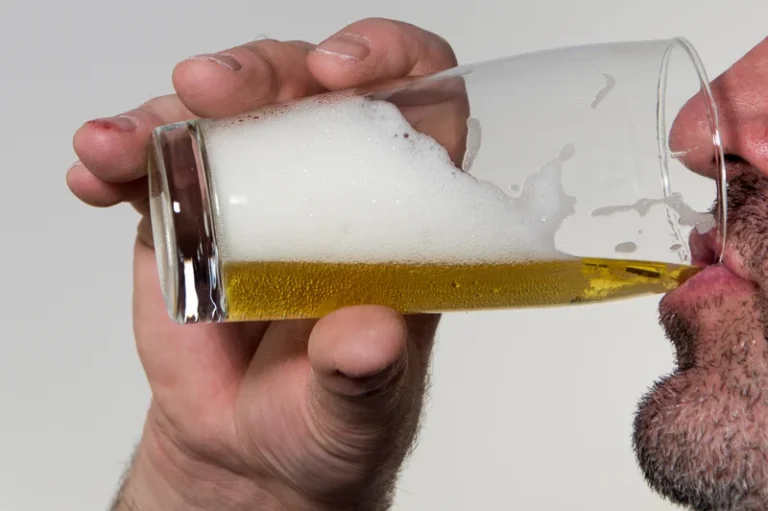
To date, most studies have reported that heavy alcohol consumption directly alters the biodiversity of gut microbes and produces dramatic change in the relative abundance of some particular microbes, causing dysbiosis and inflammation in the gut [47,48,49]. Similar effects have been shown in moderate alcohol consumption and chronic consumption in animal models [46,50,51,52]. Unlike chronic alcohol consumption, binge drinking pattern (a frequent form of alcohol consumption, defined as 5 or more drinks for men and 4 or more drinks for women within 2 h) has not shown homogeneous results even using similar experimental designs. Some studies have found an effect of binge drinking on IMB (increased 16S rDNA levels) [53], but others have obtained negative results [54]; therefore, more studies are needed to elucidate this relationship. It is also critical to take into consideration that the effects of ethanol on immune function in vivo could involve the actions of its primary metabolite, acetaldehyde.
How much alcohol you have to drink before it weakens your immune system

What’s more, a short period of binge drinking — let’s say a month — can cause a reduction in T cells. And this reduction is equal to that of someone does alcohol suppress immune system who has been binge drinking for 6 months. Antibodies detect and get rid of substances that are harmful to your body, including bacteria and viruses.
Alcohol Withdrawal Symptoms: What Does Detoxing Feel Like? A Timeline
The immune system is how your body defends itself from infections — like harmful bacteria and viruses — and prevents you from getting sick. But just like a muscle, the immune system can become weak and fail to protect you against infection as well. Similarly, alcohol can trigger inflammation in the gut and destroy the microorganisms that live in the intestine and maintain immune system health. Even drinking a little too much (binge drinking) on occasion can set off a chain reaction that affects your well-being. Lowered inhibitions can lead to poor choices with lasting repercussions — like the end of a relationship, an accident or legal woes. Each of those consequences can cause turmoil that can negatively affect your long-term emotional health.
Bacterial Infections
The ability of alcohol to alter both innate and adaptive immune defenses inevitably impacts how the immune system of even a moderate alcohol drinker can respond to infections. In fact, alcohol use has been shown to increase the susceptibility of drinkers to both bacterial and viral infections, as well as advance the progression of several chronic viral infections, including human immunodeficiency virus (HIV) and hepatitis C. Male rats on a liquid diet with 35% of calories coming from ethanol also showed enhanced mRNA half-life and protein expression of LPS-induced TNF-α by increasing TNF-α in liver monocytes/macrophages (Kishore, McMullen et al. 2001).
- The effects of both acute and chronic alcohol exposure on the immune responses in the lungs and thus on susceptibility to pulmonary infections are discussed in more detail in the article by Simet and Sisson.
- However, alcohol can also weaken the immune system, cause serious health conditions and make the body more vulnerable to infections and viruses.
- Experts suggest sticking to serving sizes and reflecting why you want that drink in the first place.
- In contrast to these observations, moderate consumption of beer (330mL for women and 660mL for men) for 30 days resulted in a significant increase in the number of leukocytes, mature CD3+ T lymphocytes, neutrophils and basophils in women, while only basophils were increased in men (Romeo, Warnberg et al. 2007).
- Cellulitis is a bacterial infection of the skin’s deeper layers that causes pain, swelling, and, redness in the skin’s infected area.
Moderate alcohol consumption and the immune system: a review
Activation of the inflammasomes results in induction of caspase-1, an enzyme needed to form mature secreted IL-1β or IL-18. Recent studies have demonstrated inflammasome activation and IL-1β induction in the liver, brain, and intestine after chronic alcohol administration in mice (Alfonso-Loeches et al. 2010; Lippai et al. 2013a,b, 2014; Orman et al. 2013). These findings are biologically significant, because administration of a recombinant IL-1 receptor antagonist that blocks signaling via the IL-1 receptor can attenuate alcohol-induced liver disease and cerebral inflammation (Petrasek et al. 2012). These observations demonstrate that chronic alcohol administration results in inflammation and leads to a vicious cycle of upregulation of the inflammatory cascade.

Alcohol use accelerates HIV disease progression

This exposure increases a newborn’s risk of infection and disease; additional evidence suggests that alcohol’s deleterious effects on immune development last into adulthood. The interaction between the liver immune system and the microbiome, under normal health conditions, is limited. Only select substances can cross the intestinal https://ecosoberhouse.com/ barrier and move into the liver, the bile ducts and the portal vein being the major connection points between the liver and microbiome [31]. However, in certain contexts, when intestinal commensals and their products translocate from the intestinal lumen to the liver, hepatic immune responses may be affected [32].
- Overall, avoid drinking more than moderate amounts if you want your immune system in good shape, says Favini.
- Some studies have found an effect of binge drinking on IMB (increased 16S rDNA levels) [53], but others have obtained negative results [54]; therefore, more studies are needed to elucidate this relationship.
- If a person regularly drinks alcohol, their injuries, cuts, and surgical site wounds may heal slower than someone who avoids alcohol.
- Not only will drinking alcohol reduce your immune system’s strength, but alcohol also has a dehydrating effect.

While any alcoholic drink can have negative effects on the body, beers or wines that contain vitamins, antioxidants and polyphenols may cause less damage to the immune system than heavy liquors. Alcohol abuse represents a risk factor for liver diseases, such as alcoholic steatohepatitis and cirrhosis [37] in such a way that approximately 25% of heavy drinkers develop clinically alcoholic liver disease (ALD). Several studies have also shown that the lungs are highly vulnerable to the effects of alcohol.
Likewise, male rats fed an ethanol-containing liquid diet (8.7% v/v for up to 4 weeks) experienced a progressive loss of both CD4+ and CD8+ T cells (Boyadjieva, Dokur et al. 2002). Increased apoptosis of T and B lymphocytes isolated from the thymus, spleen, and lymph nodes of female mice was observed following 16 hour culture with 0.4%-2% ethanol, concentrations 5 to 25 times the definition of intoxication (Slukvin and Jerrells 1995). In contrast to these observations, moderate consumption of beer (330mL for women and 660mL for men) for 30 days resulted in a significant increase in the number of leukocytes, mature CD3+ T lymphocytes, neutrophils and basophils in women, while only basophils were increased in men (Romeo, Warnberg et al. 2007). Acetaldehyde is the toxic byproduct that contributes to tissue damage, alcohol dependence, and addiction (Zakhari 2006). It can also bind to other proteins to form adducts, such as malondialdehyde (MDA) and MDA-acetaldehyde (MAA), which play a key role in the development of liver injury and stimulate antibody responses that further promote liver inflammation and fibrosis (Tuma and Casey 2003).
- TLR4-deficient mice prevented such neuroinflammation, synaptic and myelin alterations, as well as long-term cognitive alterations [105].
- Similarly, as with the Th1 responses, alcohol inhibits the ability of dendritic cells to promote Th17 responses, thereby favoring Th2 responses (Heinz and Waltenbaugh 2007).
- The occasional quarantine cocktail isn’t going to inhibit the immune system or set you on a path to alcohol misuse.
Thus, alcohol intoxication can suppress chemokine production and impair the expression of proteins that allow neutrophils to adhere to other cells at the site of infection, which also contributes to increased susceptibility to infection. For example, in a model of lung infection, acute alcohol intoxication suppressed the production of certain chemokines (i.e., CINC and MIP-2) during infection and inflammation, thereby markedly impairing the recruitment of additional neutrophils to the site of infection (Boé et al. 2003). This defective neutrophil recruitment could be partially restored by localized chemokine administration (Quinton et al. 2005). Chronic excessive alcohol consumption causes inflammation in a variety of organs, including the gut, brain and liver.
